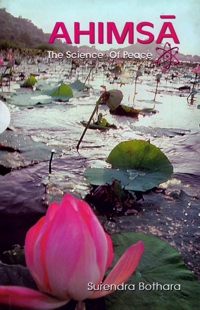CONSUMERISM
One of the major causes of intolerance leading to violence as well as environmental pollution in the modern world is consumerism. It sounds strange but is very true. A simple and benign looking thing can, in the long term, cause psychological changes that have a far-reaching influence in many other areas in the system. Consumerism is a two-edged sword. On one side, it systematically depletes natural resources, polluting and destroying the environment as a consequence. On the other side, it breeds destitution, disparity and discontent leading to terrorism.
Basically and essentially we consume to survive. Next comes comfort, and then ambition. In every human society, as evident from the history of this planet, ambition necessarily overtakes need and comfort at some point of time. If this onslaught of ambition is not curbed and bridled, it eventually leads to collapse. This has been happening time and again since the beginning of human history, but we fail to learn a lesson. We continue to fall into the same trap and suffer. Unfortunately and ironically in the present scenario, the concept of development has been contaminated with ambition. This has turned the benign terms consume and consumer into the all-consuming devil of consumerism.
Consumerism has its origin in planned exploitation of human need by turning it into greed. With a confidence bolstered by the notion that our planet is a vast, unending storehouse of natural resources, we have been milking it for ages. Initially out of ignorance and later due to force of habit, we have neglected all the warnings and continued to invent new and more efficient methods of exploiting all that nature could provide us. On the pretext of technological and financial advancement, we have put human society on a fast track that could inevitably take us to the precipice of irredeemable destruction.
The communications revolution has provided a highly efficient tool for the globalization of consumerism with the added evil of an ever-increasing pace of life. Racing and competition have become essential parts of modern life. Intolerance is a natural attribute of a mindset driven by wanton ambitions. It is not that intolerance was non-existent in the past, but it certainly was not as widespread as now, thanks to the communications revolution.
When we move too rapidly the chances of committing mistakes increase. When we move too slowly we tend to become lax and once again the chances of mistakes increase. This is himsa. The optimum is ahimsa, and deviation from the optimum is himsa. Balance is ahimsa, and imbalance is himsa. When we take care not to drift from the path of balance we are pursuing the path of ahimsa. Limiting our needs comes through self-discipline, and that in turn comes from a balanced state of mind. This is a broad definition and covers every field and facet of life. This principle needs to be applied in different ways in different situations.
 Surendra Bothra
Surendra Bothra

